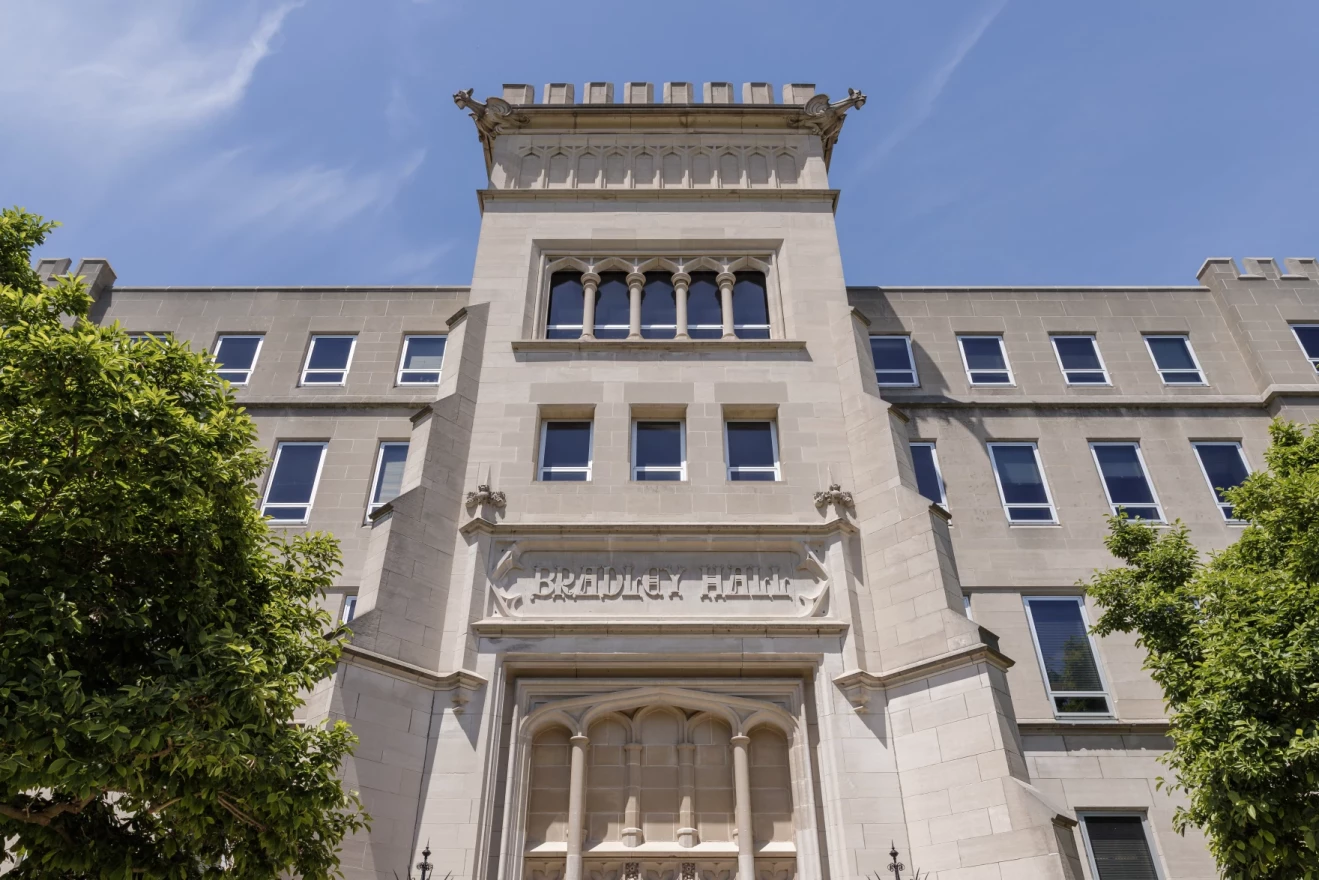A group of current and former Bradley University professors, along with the school’s chapter of the American Association of University Professors (AAUP), alleges in a new lawsuit that the Peoria institution breached contracts and racially discriminated against an employee by enacting 2023’s budget cuts.
The widely-reported cuts, finalized by former President Stephen Standifird in December 2023, ended 15 academic programs, stopped offering five others as majors, and cut 38 faculty positions, as well as an additional 23 eliminated through attrition.
In July 2023, Standifird said the university was running on a $13 million operational deficit and needed to cut around 10% of cost to stabilize the financial situation and address debt obligations. Those cuts came primarily from Academic Affairs, a decision which resulted in vocal pushback from the student body and faculty.
Bradley's University Senate voted overwhelmingly in November 2023 to pass resolutions of no confidence in the president and provost Walter Zakahi due to the handling of the cuts.
Around the time the cuts were finalized, the Bradley AAUP chapter told WCBU they’d retained legal counsel under the belief the cost-cutting procedure violated the university’s faculty handbook.
A class action lawsuit filed in the U.S. District Court for the Central District of Illinois last week appears to be the culmination of that legal effort.
A representative of the Bradley AAUP chapter declined to comment on the litigation when contacted by WCBU.

The lawsuit and its basic argument
The 26-page complaint, supplemented with an additional 60 pages of related exhibits, argues the faculty handbook is a part of the professors’ employment contracts.
As evidence of this, the suit points to a sentence that appears in some of the tenure renewal and offer letters provided as exhibits: “freedoms and privileges provided you through this contract are outlined specifically and in detail in the Faculty Handbook.”
The suit goes on to argue that the way Bradley administration implemented the cuts in 2023 violated several rules, as interpreted by the plaintiffs, outlined in the handbook. Those include, but are not limited to:
- Faculty have primary responsibility in faculty status and educational decisions
- The probationary period for tenure-track faculty is six years and annual renewal can’t be denied without a cause, such as poor performance on a faculty review
- Discontinuation of an academic program can only happen based on educational considerations, as determined by faculty
- Faculty can only be terminated under certain criteria outlined in the handbook
The suit does acknowledge that Bradley University performed a faculty review of possible cuts through the University Senate’s executive committee, but claims that review was hampered by insufficient and faulty financial data provided by the administration. It also claims the administration ultimately ignored the review’s recommendations, as administrators concurrently developed their own plan for the cuts.
The suit argues it follows that, because the faculty handbook is a part of employee contracts, violating the handbook while dismissing the employee constitutes a breach of contract.
The suit specifically names 10 professors and the union as plaintiffs. It clarifies nine are terminated or have been notified of termination, while one is still employed by the university.
The two groups of professors represent the two outlined classes that could choose to participate in the suit: terminated professors alleging breach of contract in their dismissal and still-employed professors alleging breach of contract for being denied their proper role in the cost-cutting process.
The lawsuit also includes a claim of one count of racial discrimination.
One of the terminated professors says her termination was a result of her Arab ethnicity. The suit alleges she was terminated from her position when other non-Arab employees in similar positions were not. It also claims non-Arab, lower ranking and non-tenure track employees were utilized by the university to teach classes previously taught by her.

Internal grievances linger
For the first time, the lawsuit provides a look at a lengthy internal grievance and appeal process following the cuts at the university that spanned from February 2024 to at least May 2025.
In February 2024, the University Senate’s executive committee filed with the school’s Faculty Grievance Committee challenging President Standifird’s program discontinuations. In April 2024, the AAUP Bradley chapter filed a grievance claiming faculty was denied their rights and responsibilities in the cost-cutting process.
Several terminated and unrenewed professors also filed appeals of their dismissals with the University Senate Tenure, Promotion and Dismissal [TP&D] Committee.

The lawsuit claims the university’s internal panels consistently sided with complainants and made recommendations like full reinstatement of faculty, reversal of program discontinuations and review of university policy. Some of the rulings from TP&D hearings are included as exhibits.
According to the suit, these recommendations were rejected by Bradley's successive presidents and the Board of Trustees as the hearings played out over months and years.
Restitution requested
The lawsuit makes several requests for the listed professors, the union and whoever may join as an applicable member of the class action.
The demands include: reinstatement of terminated faculty, compensation for lost wages and injunctive relief by halting the elimination of academic programs until faculty are satisfied the process outlined by the handbook has been followed.
The lawsuit also asks for two declarations from Bradley University. One would affirm that the faculty handbook stops administration from making “unilateral changes” to faculty status and academic programs, while the other would admit that administration violated the handbook during the cost-cutting process.
For the former professor alleging racial discrimination, the lawsuit also asks for additional restitution for emotional distress and attorney’s fees.
A spokesperson for Bradley University said, as a matter of practice, the institution does not comment on pending litigation.
“That said, we remain committed to our mission, our students and the values that guide our academic community,” read an emailed statement.
The lawsuit requests a trial by jury. However it could be a long time before any of the professor’s claims are litigated in court, as class-action lawsuits often take years to work their way through the courts.


